
Copernical Team
Mars helicopter Ingenuity completes 56th flight
 Ingenuity, the tiny helicopter that has far surpassed expectations on Mars, has completed its 56th flight, NASA's Jet Propulsion Lab announced Thursday.
Ingenuity flew 1,334 feet, a little over a quarter of a mile, across the Martian surface last Saturday, JPL said in a statement. The tiny chopper flew at a maximum altitude of about 39 feet above the surface of the Red Planet.
"The goal of this
Ingenuity, the tiny helicopter that has far surpassed expectations on Mars, has completed its 56th flight, NASA's Jet Propulsion Lab announced Thursday.
Ingenuity flew 1,334 feet, a little over a quarter of a mile, across the Martian surface last Saturday, JPL said in a statement. The tiny chopper flew at a maximum altitude of about 39 feet above the surface of the Red Planet.
"The goal of this BlackSky images complex evacuation operation during first days of 2023 Sudan conflict
 BlackSky Technology Inc. (NYSE: BKSY) released a sixty-image collection captured over Khartoum, Sudan, showcasing the never-before-seen scale of operational complexity associated with the evacuation of international civilians and key personnel from Wadi Sayyidna Airfield from late April until early May. The image collection contains high-cadence, time-diverse imagery taken as early as 5:37 a.m.,
BlackSky Technology Inc. (NYSE: BKSY) released a sixty-image collection captured over Khartoum, Sudan, showcasing the never-before-seen scale of operational complexity associated with the evacuation of international civilians and key personnel from Wadi Sayyidna Airfield from late April until early May. The image collection contains high-cadence, time-diverse imagery taken as early as 5:37 a.m., Preventing outer space from becoming a hazardous junkyard

As the number of objects launched into orbit grows, the EU is working to prevent debris from getting out of hand.
An upsurge in worldwide rocket and satellite launches into space means collisions are an increasing danger that EU research projects are seeking to curb.
The number of satellites in space may exceed 100,000 by 2030, according to forecasts. Small satellites are increasingly being sent into low orbits 500 to 1,000 kilometers above Earth to do everything from improve remote communications to guide driverless cars.
Collision alarm
"There is an increasing amount of debris in space," said Anthony Caron, future programs manager at a French space-observation company called Share My Space. "More and more debris implies more and more collision probability—and the problem is real now. There are lots of events where you have to perform maneuvers to avoid collisions.
Space junk in Earth orbit and on the moon will increase with future missions—but nobody's in charge of cleaning it up
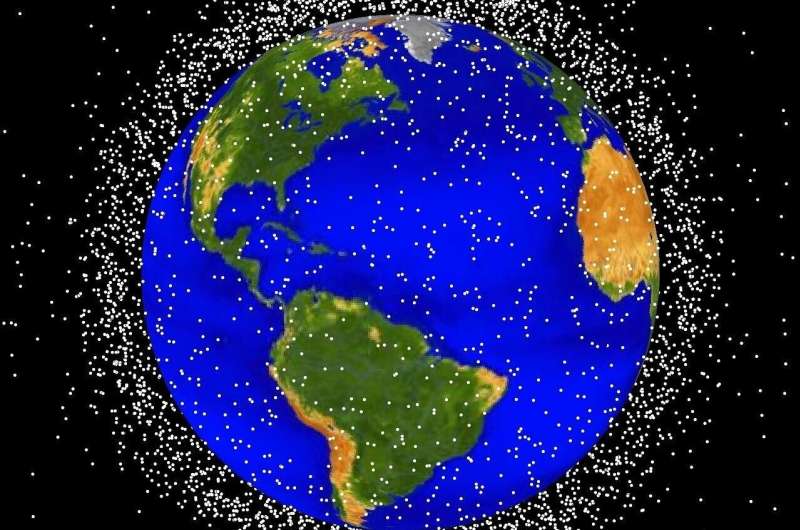
There's a lot of trash on the moon right now—including nearly 100 bags of human waste—and with countries around the globe traveling to the moon, there's going to be a lot more, both on the lunar surface and in Earth's orbit.
In August 2023, Russia's Luna-25 probe crashed into the moon's surface, while India's Chandrayann-3 mission successfully landed in the southern polar region, making India the fourth country to land on the moon.
With more countries landing on the moon, people back on Earth will have to think about what happens to all the landers, waste and miscellaneous debris left on the lunar surface and in orbit.
I'm a professor of astronomy who has written a book about the future of space travel, articles about our future off-Earth, conflict in space, space congestion and the ethics of space exploration. Like many other space experts, I'm concerned about the lack of governance around space debris.
Space is getting crowded
People think of space as vast and empty, but the near-Earth environment is starting to get crowded.
Video: Muscle stimulation to enhance astronaut health
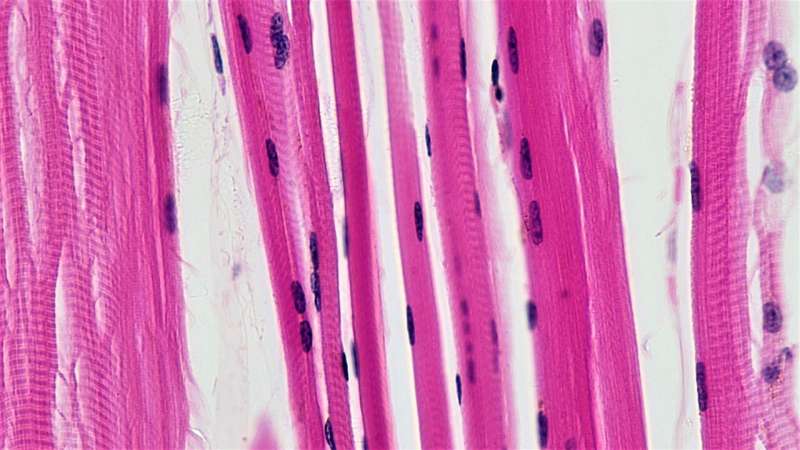
Space exploration presents unique health challenges for astronauts due to lack of gravity, isolation, and radiation exposure. ESA's SciSpacE activities aim to comprehend these effects and their implications for human well-being during extended missions.
ESA collaborates with researchers to conduct experiments in microgravity and analog environments, shedding light on the consequences of space stressors. One critical concern is muscle and bone atrophy. Despite daily exercise routines, astronauts face deterioration. ESA is investigating electrical stimulation as a potential countermeasure, with tests planned on board the International Space Station.
The Muscle Stimulation experiment is a centerpiece of this research. By applying controlled electric currents to leg muscles, the study aims to enhance muscle mass, strength, and recovery. Complementary assessments, including MRI scans, microcirculation analysis, and blood samples, will provide a comprehensive understanding of the efficacy.
Addressing these challenges could yield benefits on Earth too. The insights gained could translate to better health care for diverse populations, from the elderly to clinical patients and athletes.
Chasing Chandrayaan and the super blue Moon
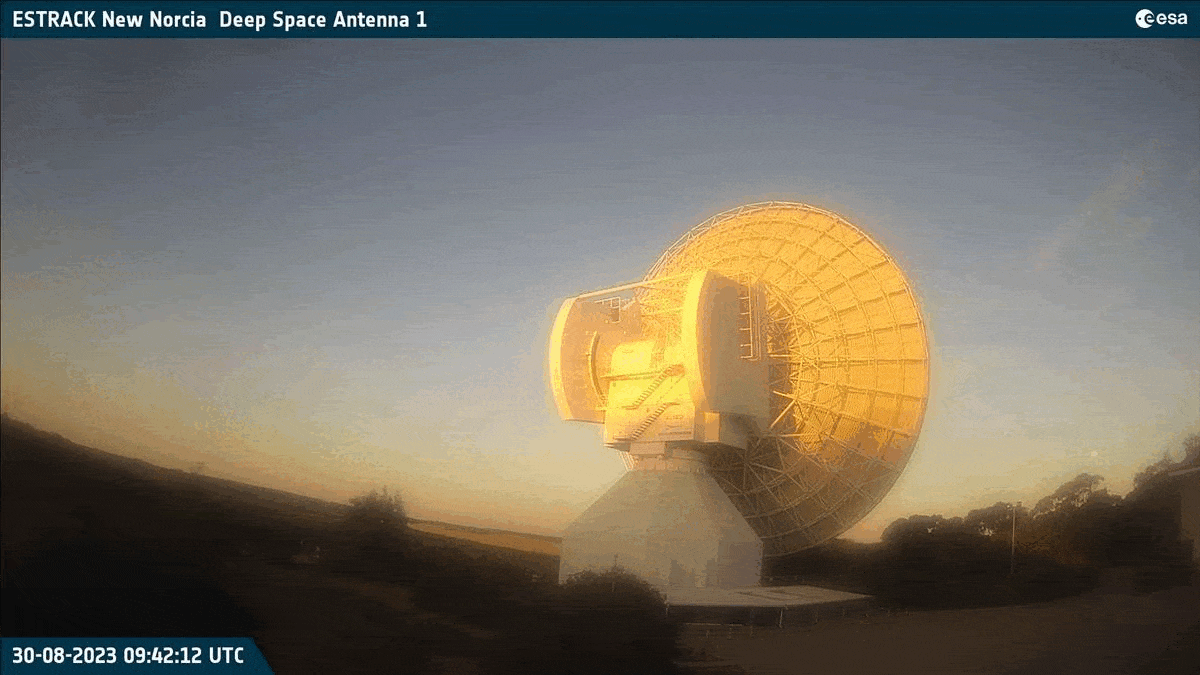 Image:
Chasing Chandrayaan and the super blue Moon
Image:
Chasing Chandrayaan and the super blue Moon Lagrange Points
 Image:
Lagrange Points
Image:
Lagrange Points How is ESA supporting ISRO’s Aditya-L1 solar mission?
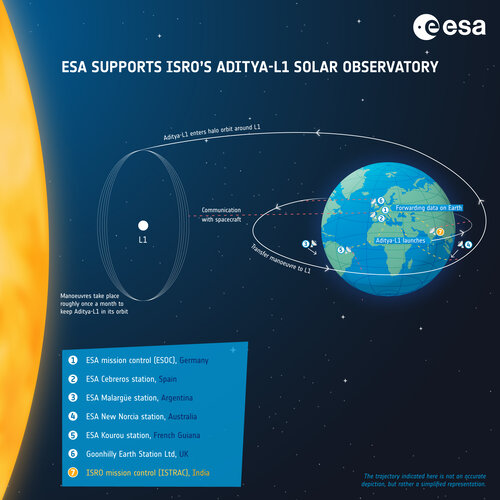
A good night’s sleep in orbit
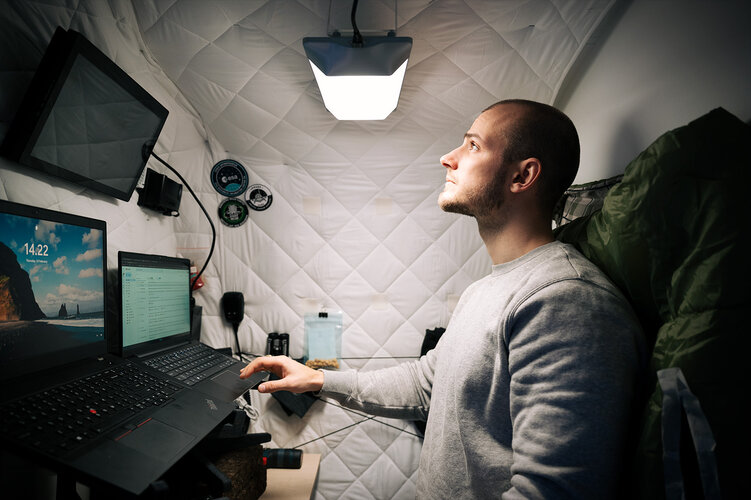
During his Huginn mission, ESA astronaut Andreas Mogensen will run two experiments focusing on sleeping in space: Circadian Light and Sleep in Orbit.
Last 'Super Blue Moon' until 2037
 Astronomy enthusiasts are in for a treat Wednesday night: a rare "super blue Moon" that won't be seen again for more than a decade.
Supermoons occur when the Moon passes through its perigee, or the point that takes it closest to Earth during its elliptical orbit. This makes it look about 14 percent bigger compared to when it is at its furthest point, and a touch brighter.
Full Moons are
Astronomy enthusiasts are in for a treat Wednesday night: a rare "super blue Moon" that won't be seen again for more than a decade.
Supermoons occur when the Moon passes through its perigee, or the point that takes it closest to Earth during its elliptical orbit. This makes it look about 14 percent bigger compared to when it is at its furthest point, and a touch brighter.
Full Moons are 
